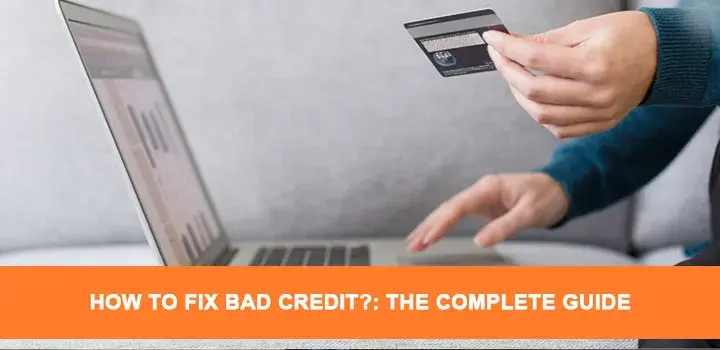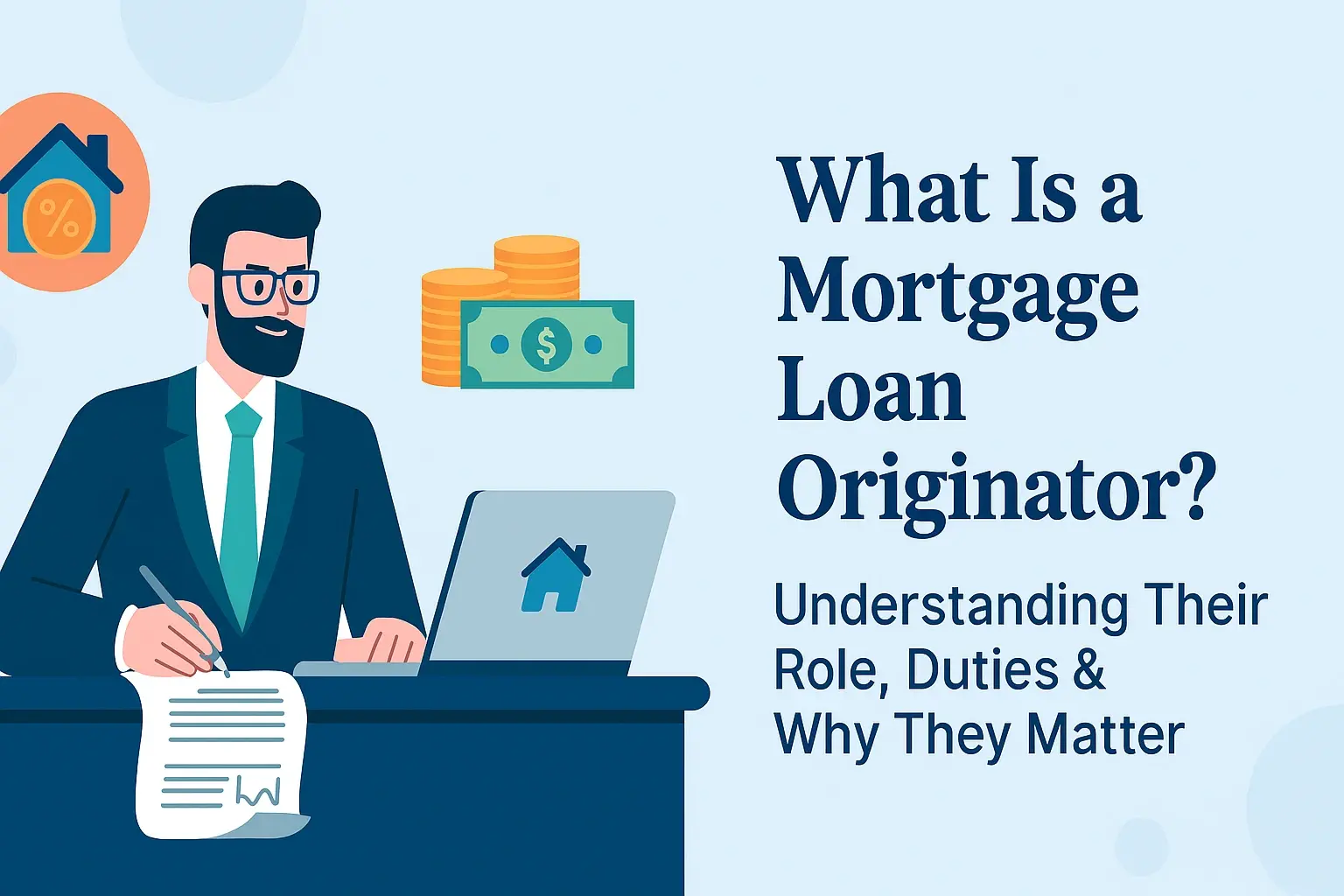-
Posted on: 24 Dec 2022

-
Having a bad credit score can significantly impact your financial life. It can affect your ability to get approved for loans, credit cards, mortgages, and even rent an apartment. A low credit score can also lead to higher interest rates, making it more expensive to borrow money. Fortunately, it's possible to improve your credit score with the right strategies and consistent effort. This comprehensive guide will provide you with actionable steps to fix bad credit and rebuild your financial future.
Understanding Bad Credit
Before you can fix bad credit, it's essential to understand what constitutes a bad credit score and what factors contribute to it.
What is a Bad Credit Score?
Credit scores typically range from 300 to 850. The most common scoring models are FICO and VantageScore. Here's a general breakdown:
- Exceptional: 800-850
- Very Good: 740-799
- Good: 670-739
- Fair: 580-669
- Poor: 300-579
A score below 670 is generally considered bad credit. Anything below 580 is considered very poor credit.
Factors Affecting Your Credit Score
Several factors influence your credit score. Understanding these factors is crucial for developing an effective credit repair strategy. The most important factors include:
- Payment History (35%): This is the most significant factor. Paying your bills on time every time is crucial. Late payments can significantly damage your credit score.
- Amounts Owed (30%): This refers to the total amount of debt you owe compared to your credit limits (also known as credit utilization). Keeping your credit utilization low (ideally below 30%) is important.
- Length of Credit History (15%): A longer credit history typically results in a higher credit score. The age of your oldest account, the age of your newest account, and the average age of all your accounts are considered.
- Credit Mix (10%): Having a mix of different types of credit (e.g., credit cards, installment loans, mortgages) can positively impact your score, as long as you manage them responsibly.
- New Credit (10%): Opening multiple new accounts in a short period can lower your credit score. Each time you apply for credit, a hard inquiry is placed on your credit report.
Steps to Fix Bad Credit
Here's a step-by-step guide to help you repair your credit and improve your credit score:
1. Check Your Credit Report
The first step is to obtain a copy of your credit report from all three major credit bureaus: Experian, Equifax, and TransUnion. You can get a free copy of your credit report annually from AnnualCreditReport.com. Review your credit reports carefully for any errors, inaccuracies, or outdated information.
Why is Checking Your Credit Report Important?
- Identify Errors: Errors can negatively impact your credit score. You might find accounts that don't belong to you, incorrect payment history, or outdated information.
- Detect Fraud: Checking your credit report can help you identify potential identity theft or fraudulent activity.
- Understand Your Credit Profile: Reviewing your credit report gives you a clear picture of your credit history, including the types of accounts you have, your payment history, and your credit utilization.
2. Dispute Errors and Inaccuracies
If you find any errors or inaccuracies on your credit report, dispute them with the credit bureaus. You can dispute errors online, by mail, or by phone. When disputing an error, provide as much documentation as possible to support your claim.
How to Dispute Errors
- Gather Information: Collect all relevant information and documentation to support your dispute, such as payment records, account statements, and identification.
- Write a Dispute Letter: Write a formal dispute letter to each credit bureau. Include your name, address, date of birth, Social Security number, account number (if applicable), and a clear explanation of the error you're disputing.
- Submit Your Dispute: Send your dispute letter and supporting documentation to the credit bureau by certified mail, return receipt requested. This provides proof that the credit bureau received your dispute.
- Follow Up: The credit bureau has 30 days to investigate your dispute. If the error is verified, they will correct your credit report. If they don't agree with your dispute, they will send you a letter explaining their decision.
3. Pay Bills on Time
Payment history is the most significant factor in your credit score. Make sure to pay all your bills on time, every time. Set up automatic payments or reminders to help you stay on track.
Strategies for Paying Bills on Time
- Set Up Automatic Payments: Schedule automatic payments from your bank account to pay your bills on time.
- Use Reminders: Set up reminders on your phone or calendar to remind you when bills are due.
- Prioritize Bills: Prioritize paying your most important bills first, such as rent, mortgage, and utilities.
- Contact Creditors: If you're struggling to pay your bills, contact your creditors and ask if they can offer a payment plan or deferment option.
4. Reduce Credit Card Balances
High credit card balances can negatively impact your credit score. Aim to keep your credit utilization below 30% on each credit card and overall. For example, if you have a credit card with a $1,000 limit, try to keep your balance below $300.
Strategies for Reducing Credit Card Balances
- Pay More Than the Minimum: Pay more than the minimum payment each month to reduce your balance faster.
- Debt Snowball or Avalanche: Consider using the debt snowball or debt avalanche method to pay off your credit card balances. The debt snowball involves paying off the smallest balance first, while the debt avalanche involves paying off the highest interest rate first.
- Balance Transfers: Transfer high-interest credit card balances to a credit card with a lower interest rate.
- Debt Consolidation Loan: Consider taking out a debt consolidation loan to pay off your credit card balances.
5. Avoid Opening Too Many New Accounts
Opening multiple new accounts in a short period can lower your credit score. Each time you apply for credit, a hard inquiry is placed on your credit report. Limit the number of new accounts you open and only apply for credit when you need it.
6. Become an Authorized User
Becoming an authorized user on someone else's credit card can help you build credit, especially if they have a good credit history and low credit utilization. Make sure the card issuer reports authorized user activity to the credit bureaus.
7. Consider a Secured Credit Card
A secured credit card is a credit card that requires a security deposit. The security deposit typically serves as your credit limit. Secured credit cards are a good option for people with bad credit because they're easier to get approved for.
8. Get a Credit-Builder Loan
A credit-builder loan is a small loan specifically designed to help people build credit. The loan proceeds are typically held in a savings account while you make payments. Once you've repaid the loan, the funds are released to you.
9. Be Patient
Improving your credit score takes time and effort. It's important to be patient and consistent with your efforts. It can take several months or even years to see significant improvements in your credit score.
Maintaining Good Credit
Once you've improved your credit score, it's important to maintain good credit habits to keep your score high. Here are some tips for maintaining good credit:
- Pay your bills on time, every time.
- Keep your credit utilization low.
- Monitor your credit report regularly.
- Avoid opening too many new accounts.
- Use credit responsibly.
Common Mistakes to Avoid
Here are some common mistakes to avoid when trying to fix bad credit:
- Ignoring Your Credit Report: Not regularly checking your credit report can lead to missed errors and potential fraud.
- Making Late Payments: Late payments are one of the most significant factors that can negatively impact your credit score.
- Maxing Out Credit Cards: High credit utilization can significantly lower your credit score.
- Closing Old Accounts: Closing old accounts can reduce your available credit and negatively impact your credit score, especially if those accounts have a long history.
- Applying for Too Much Credit at Once: Applying for multiple credit cards or loans in a short period can lower your credit score due to hard inquiries.
- Using Credit Repair Companies: Be cautious of credit repair companies that promise quick fixes. Many of these companies make false claims and charge high fees. It's often more effective and less expensive to repair your credit yourself.
When to Seek Professional Help
While you can fix bad credit on your own, there are certain situations where seeking professional help from a credit counselor or financial advisor may be beneficial.
- Overwhelmed by Debt: If you're struggling to manage your debt and feel overwhelmed, a credit counselor can help you develop a debt management plan.
- Complex Financial Situation: If you have a complex financial situation, such as multiple debts, judgments, or liens, a financial advisor can provide personalized guidance.
- Unable to Resolve Errors: If you've tried disputing errors on your credit report but haven't been successful, a credit counselor or attorney specializing in credit law may be able to help.











